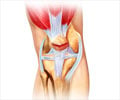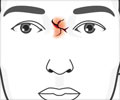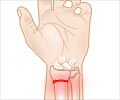Patients who avoid tobacco for six weeks after surgery for an acute fracture have fewer postoperative complications, a new study claims.

"Our results indicate that a smoking cessation intervention program during the first six weeks after acute fracture surgery decreases the risk of postoperative complications by nearly half," said Hans Nesell, MD, senior surgical consultant, Karolinska Institutet, Svdersjukhuset, Stockholm, Sweden.
"Tobacco smoking is a major health and economic concern and also is known to have a significant negative effect on surgical outcomes," Dr. Nesell said. "The benefits of a smoking cessation program prior to elective surgery are well known, but there have not been any studies about the benefit of smoking cessation following emergency surgery. Our aim was to assess whether a smoking cessation program, started soon after hospitalization and continuing for six weeks following surgery, could reduce the number of postoperative complications."
In the study, conducted at three hospitals in Stockholm, daily smokers who underwent emergency surgery for an acute fracture were offered a smoking cessation program within two days of surgery, and then followed for six weeks.
Patients included in the program were offered one or two in-person meetings, in addition to regular telephone contact with a nurse trained in the cessation program. During the six-week follow-up, patients were encouraged not to smoke and free nicotine substitution was offered to those who needed it.
Up until this point, the belief was that you needed to stop smoking prior to surgery to gain any benefit," Dr. Nesell said. "It was surprising, and encouraging, to see that even stopping smoking following surgery for a period of time can offer significant benefits, including nearly a 50 percent reduction in wound complications.
Smoking inhibits circulation and lowers blood oxygen levels, which can affect short-term and long-term healing in several ways.
Therefore, it's very encouraging to see that stopping smoking following surgery offers some of the same benefits as preoperative smoking cessation."
Source-ANI
 MEDINDIA
MEDINDIA




 Email
Email










